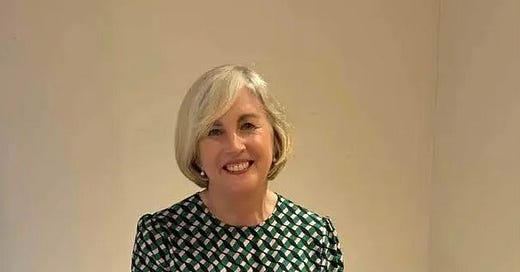Book talk: A memoir of grief and glamour
Griffin Dunne's The Friday Afternoon Club w Ann Kennedy Smith
Substack offers so many opportunities to connect with other writers who share an interest in books. Last July, when I put together a themed list, Reading Sibling Stories including Griffin Dunne’s family memoir, The Friday Afternoon Club,
of the Substack Featured Publication popped into the comments to let me know she was planning to read it, too.Ann’s deeply researched weekly writing on the women associated with Cambridge— writers, students, lecturers, and wives from the Victorian era through the mid-20th century—and the photos she posts of the academic library and surrounding campus and town make me feel I’ve upgraded my IQ by association. I had to know what this literary biographer would think of Dunne’s Joan Didion-adjacent celebrity memoir. Though it took us awhile to coordinate our schedules across seven time zones, we met recently to discuss.
Dunne’s memoir centers on the October 30, 1982 attack on his sister, actress Dominique Dunne of Poltergeist fame, at age 22 by her ex-b…
Keep reading with a 7-day free trial
Subscribe to The Booktender to keep reading this post and get 7 days of free access to the full post archives.




